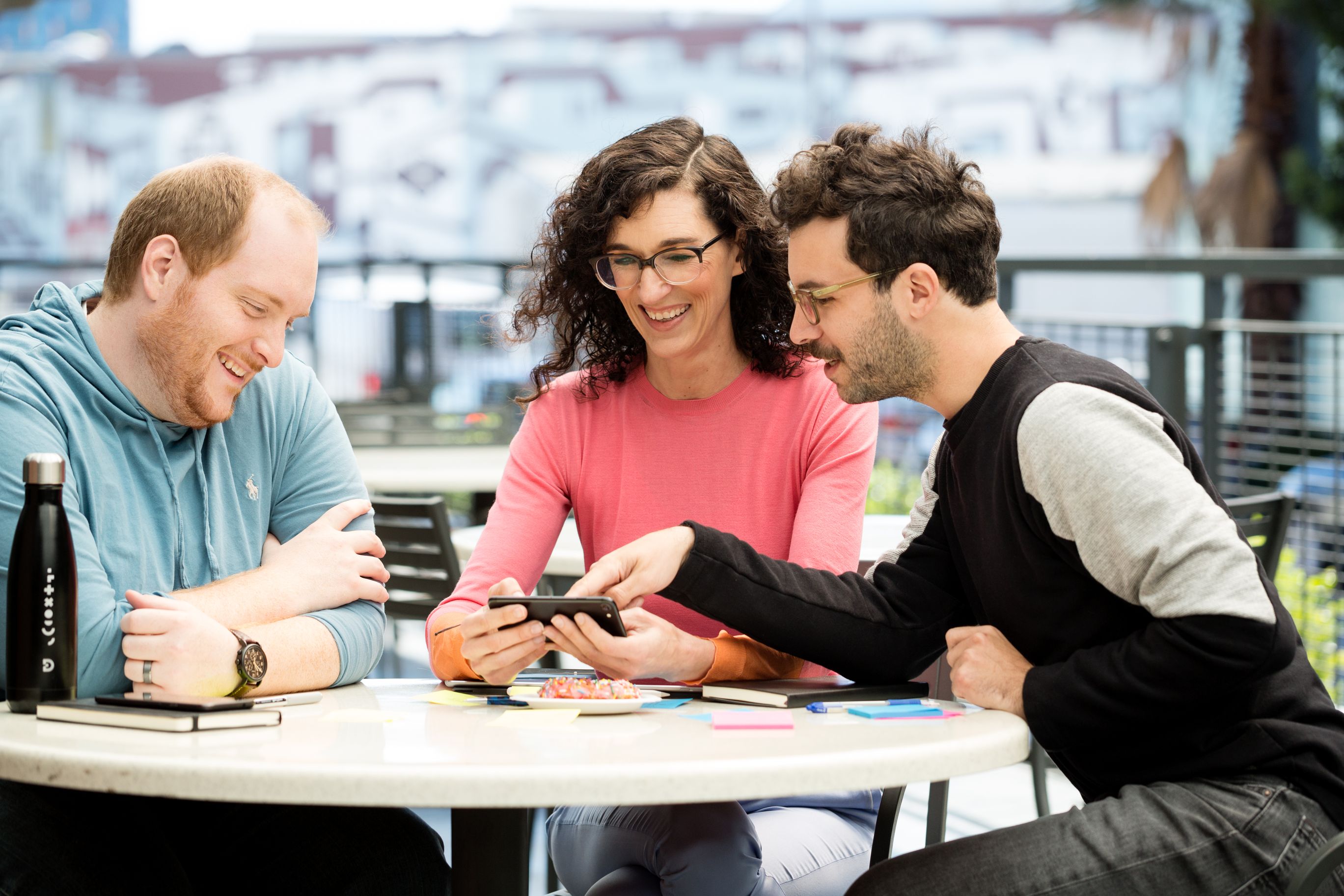“Back in 2010, I co-founded an Augmented Reality (AR) startup, Dekko. The discoveries we made and the solutions we built shaped who I am and the leader that I strive to be,” says Ms. Silka Miesnieks, head of Adobe’s Design Lab.
Augmented Reality (AR) empowers designers to place digital designs anywhere in the world, allowing their designs to respond to voices, body gestures, the physical dimension of a space, and even with other objects, she elaborates. Immersive technologies, such as AR and Virtual Reality (VR), also call for a new way to design, thus creating a completely new design discipline.
At Dekko, Ms. Miesnieks and her team pioneered new tools for designers by prototyping new solutions with the use of AR; for example, navigating a retail store or event, visually searching for information about an object or a place one can see through a mobile device, and designing new ways to communicate remotely in a more human way using the physical space, voice and bodies. The work they did led to major breakthroughs in understanding how AR was going to impact how people interact with each other, and even led them to build the first real-world multiplayer game.
- UNRELENTING CURIOSITY
- BEYOND THE SKILL SETS
- IMMERSIVE MEDIA AS DISRUPTOR
Unrelenting Curiosity
Working at Dekko provided Ms. Miesnieks with the skill set to lead a team charged with exploring a new design discipline. And today at Adobe, she “builds on top of these learnings with my team as we continue to invent tools that will empower designers to build new and inspiring immersive experiences”.
At Adobe, before any design project is set into motion, designers begin by asking themselves three critical questions, Ms. Miesnieks says. “Who is it for? What problem are we solving? Why Adobe? These three simple questions can be very hard to answer,” she emphasizes, “so we support the teams by running design sprints, engaging our user research experts, and creating prototypes.”
Designing the tools of the future at Adobe requires Ms. Miesnieks and her team to conduct extensive research that will uncover the pressing problems that they will need to address using emerging technologies. “We do this by looking at user behaviors and needs, projecting technology trends, and future scenario testing. This work requires a team with a diversity of skills, empathy and unrelenting curiosity.
- UNRELENTING CURIOSITY
- BEYOND THE SKILL SETS
- IMMERSIVE MEDIA AS DISRUPTOR
Beyond the Skill Sets
Ms. Miesnieks places curiosity on top of the requisite traits a designer must possess. “A designer building tools for the future (must) be curious. (He) should always be looking for new ideas, inventing better processes, experimenting with new technologies, and inspiring experiments that align with customer needs. In addition to being curious, a designer needs to be deeply empathetic to human needs and have a desire to solve challenging problems.”
Although she acknowledges the value of design education, she puts emphasis on flexibility as an important qualification. “Since I started working on the edges of new technology, I’ve realized how important it is to be flexible. On one hand, it requires knowing the process like chords of an instrument, but in practice, it’s more like jazz. You have to be able to improvise and adapt, and be comfortable with feeling uncomfortable. Creation never ends, and even if your part is over, someone else along the line could add to it – maybe the community adds to it. I love that about the design process, but it requires being flexible and being comfortable with ambiguity.”

Diversity of experiences is important as well. “When I hire designers, I like to see that they are bringing something unique to the table. We need to start thinking about design as something universal and inclusive. Design impacts almost every aspect of our daily lives, so we need designers who are able to design for a world that is full of amazing, multi-faceted people from all walks of life, and design education needs to empower those diverse experiences.
“Last but not least, perseverance must be a crucial part of design education. I encourage people to learn from failure. If you’re not making mistakes then you may not be really pushing your limits.”
- UNRELENTING CURIOSITY
- BEYOND THE SKILL SETS
- IMMERSIVE MEDIA AS DISRUPTOR
Immersive Media As Disruptor
Ms. Miesnieks has witnessed the rapid change in design along with the technology that helped bring them to reality. “Digital experiences are jumping off the screen and infusing our everyday world with the magic of immersive technology,” she points out. The potential of immersive technology is endless, she asserts, and it will allow us to share emotional experiences and create empathy for the reality of others. “Immersive media as the next disruptive platform is powerful and offers access and connection in a way that 2D does not.”
Ms. Miesnieks surmises that the direction in which all of this is headed will be driven by the next generation of designers and the tools that they have at their fingertips. “That’s why our mission at the Adobe Design Lab is to prototype the future for Adobe’s immersive design products and services. Like a SWAT team of inventors, we develop the tools, technologies and techniques that designers will need to create the immersive realities of the future.”
Although she admits that the immersive design language hasn’t been perfected just yet, Ms. Miesnieks believes given the right tools and environment, designers will be able to solve these problems along the way. “And that’s why I am so excited for what’s ahead.”











 Back
Back